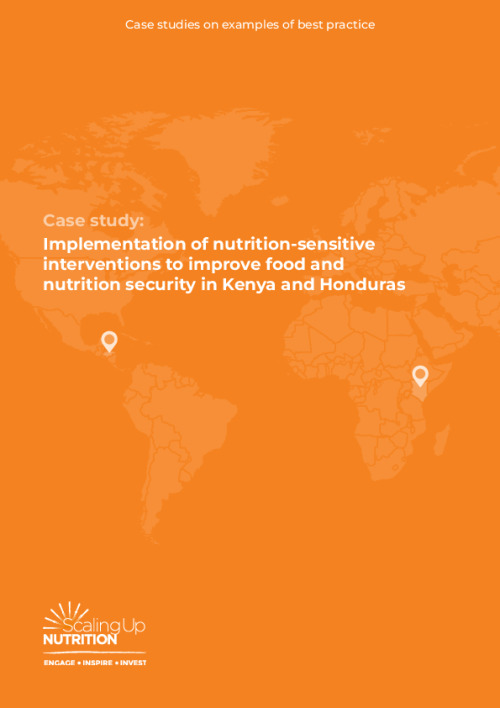Case study: Implementation of nutrition-sensitive interventions to improve food and nutrition security in Kenya and Honduras
Nutrition-sensitive interventions are those whose primary objective is not nutrition, but that have the potential to improve the food and nutrition security of beneficiaries.1 Such programmes take place in sectors complementary to nutrition, such as agriculture and education, and are designed to address the underlying causes of malnutrition. The initiatives outlined in this case study aim to achieve this by increasing the availability of, access to, and consumption of food in the targeted populations.
Home gardens promote the production of nutrient-rich fruits and vegetables that grow well in local conditions. Household members, particularly women, are trained in cultivating crops and raising livestock. Such interventions have shown promising increases in food production and dietary diversity.2 Although the evidence of nutritional impact is limited, kitchen gardens have the potential to impact nutrition indirectly: by raising household income and purchasing power; through the empowerment of women in society; and through increased availability of food in markets when surplus from the kitchen garden is sold.3 In this case study, we explore one such initiative in Kenya.
We also explore a nutrition-sensitive initiative in the Dry Corridor area of Honduras, where a multi-donor alliance has been established to reduce poverty and malnutrition through strategic investments in vulnerable communities. The initiative aims to (a) mitigate the impacts of climate change on food security and nutrition by increasing the resilience of smallholder farmers; and (b) maximise integrated approaches for increasing smallholders’ productivity and income generation through more sustainable food systems.
